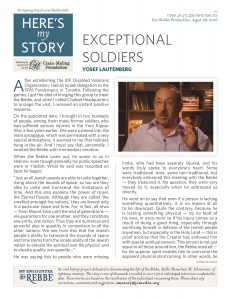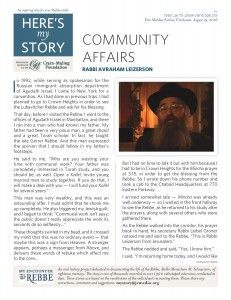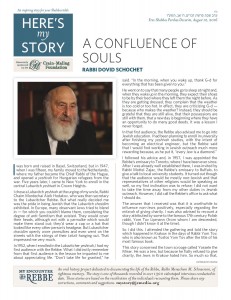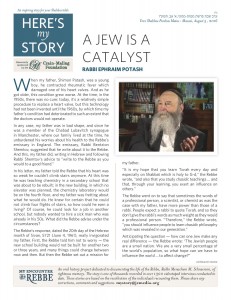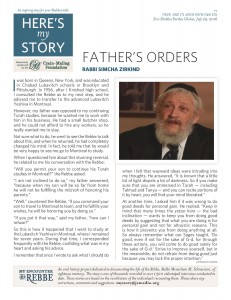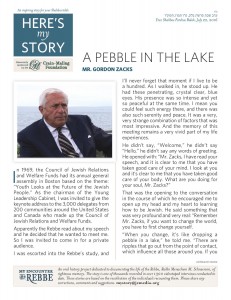The Blessing of Being in a Squeeze
My grandfather, the prominent Israeli rabbi, Shlomo Yosef Zevin, came from a Lubavitcher family. He was in constant contact with the Rebbe, and when I decided – in 1955 – to begin learning in the Chabad yeshivah in New York, he was delighted. (Previously I had studied at the Ponevezh Yeshiva in Bnei Brak.)
Obviously, one of the main attractions of studying in New York was the opportunity to spend time with the Rebbe. And, as it happened, during my stay I had the chance to speak with him privately on three separate occasions.
The first audience included a lively discussion concerning my various Talmudic studies. My second audience was even more interesting. In middle of our conversation, he suddenly asked me, “What are you doing here in New York – doesn’t Jewish law prohibit a resident of Israel to leave for the Diaspora?”
I was a bit surprised by this question, as I had expected the Rebbe to know the three conditions which permit one to leave the Holy Land, but nonetheless I answered, “One may leave Israel for the sake of livelihood, to seek a wife or, as in my case, to study Torah.”
“Does that mean then,” he responded, “that before leaving Israel one must make a calculation – namely, that one would study more in the Diaspora than otherwise? And, having made that calculation, one need no longer think about it?”
He paused and then continued, “Or, does it mean that one must ask himself every day: ‘I am a resident of the Holy Land of Israel, what am I doing in New York?’ And every day one must be able to answer, ‘I have studied more today than I would have back home.’ Is that what one must do?”
I had never considered this question before, and I was most amazed. It was one of the many things that amazed me. Daily, I was amazed at how much the Rebbe demanded from his yeshivah students – that we should literally immerse ourselves in the study of Torah, that we should keep increasing in our studies, and that we should not be satisfied with our past achievements. But as demanding as he was, he also cared deeply about our welfare.
It was only after I had already left the yeshivah that I learned just how important my own welfare had been to him. For example, when I first arrived in New York, he had personally instructed his secretariat to see to it that I was properly settled in.
On another occasion, he took pains to pick me out of a crowd and write about me to my grandfather. On that occasion, during Simchat Torah, I was standing in a crush of chasidim. And then I saw the Rebbe, up on his podium, turn to confer with his secretary, Rabbi Chaim Mordechai Aizik Hodakov, who pointed me out to him. I wondered what the Rebbe might want with me, but it was not until I returned to Israel that I understood. That’s when I read a letter he had sent to my grandfather in which he wrote: (more…)



